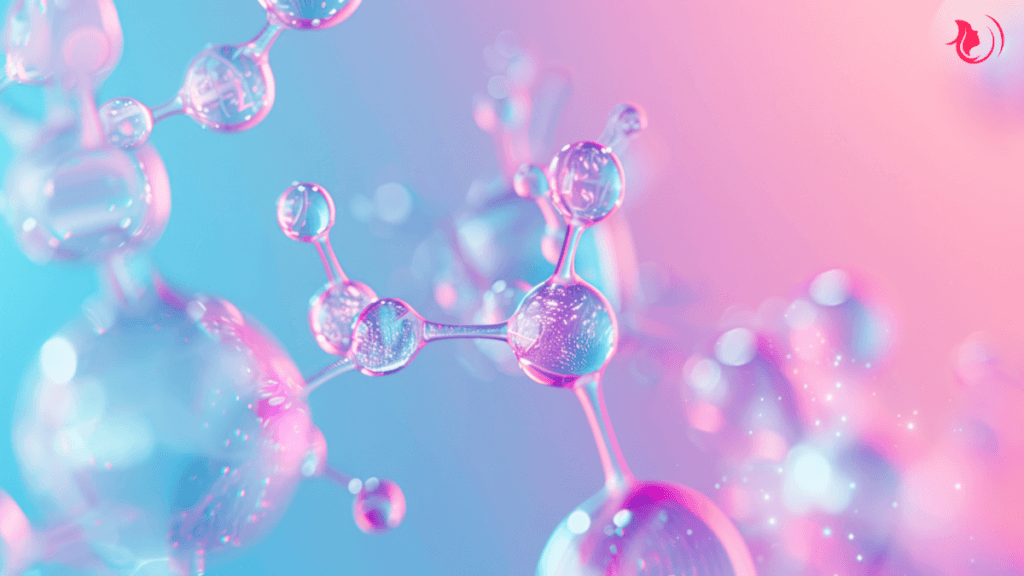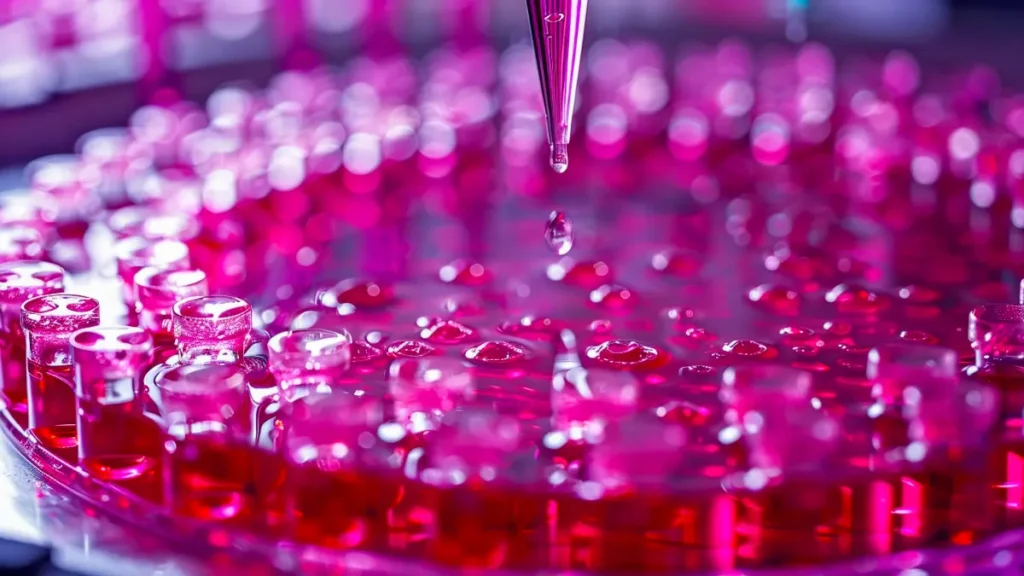Peptides have become a cornerstone in aesthetic treatments due to their multifaceted benefits and efficacy in addressing various skin concerns. Here’s an in-depth look at how peptides work and why they are highly valued in cosmetic dermatology.
The Role Of Peptides In Skincare
Peptides are short chains of amino acids, which are the building blocks of proteins like collagen and elastin. In the skin, peptides act as messengers, sending signals to cells to trigger specific functions such as collagen production, cell repair, and hydration. This signalling is crucial for maintaining skin health and combating the signs of aging.
Types Of Peptides And Their Functions
Carrier Peptides: These peptides deliver essential trace minerals to the skin, which are vital for collagen production and skin healing. By boosting collagen synthesis, carrier peptides help improve skin elasticity and firmness.
Signal Peptides: Signal peptides stimulate the production of collagen, elastin, and other proteins that are integral to maintaining the skin’s structure and resilience. They play a significant role in reducing wrinkles, fine lines, and improving skin.
Neurotransmitter Inhibitor Peptides: These peptides work similarly to Botox by inhibiting the release of neurotransmitters that cause muscle contractions. This results in a reduction of expression lines and wrinkles, providing a smoother and more relaxed appearance.
Enzyme Inhibitor Peptides: These peptides slow down the natural breakdown of collagen by inhibiting the enzymes responsible for collagen degradation. This helps maintain the skin’s youthful structure for a longer period.
Benefits Of Peptide-Based Treatments

Peptides are known for their ability to stimulate collagen synthesis, which plays a crucial role in maintaining skin firmness and elasticity. By boosting collagen production, peptides help to firm the skin, reduce the appearance of wrinkles, and improve overall skin texture. This makes them an essential component in anti-aging skincare regimens. Enhanced collagen production not only leads to a youthful and vibrant complexion but also supports the skin’s structural integrity, providing a smoother surface.
Some peptides possess hydrating properties that are beneficial for maintaining skin moisture levels. These peptides attract and retain water within the skin, helping to achieve a plump, dewy complexion. Proper hydration is essential for healthy skin function, and peptides aid in creating a moisture-rich environment that keeps the skin looking fresh and radiant. This hydration also helps to reduce the appearance of fine lines and improves the skin’s overall texture.
Peptides can also reduce inflammation and oxidative stress, which are significant contributors to skin aging and damage. By protecting the skin from environmental damage and reducing inflammation, peptides promote a healthier and more vibrant appearance. The antioxidant properties of certain peptides help to neutralize free radicals, which can cause cellular damage and accelerate aging. This protective effect supports the skin’s natural repair processes, leading to improved skin health.
One of the most remarkable aspects of peptides is their versatility in addressing various skin concerns. Whether it’s anti-aging, acne treatment, or improving skin texture, peptides can be tailored to meet specific skincare needs. Different types of peptides target different issues, allowing for a customized approach to skincare. This adaptability makes peptides an invaluable tool in modern dermatology. It is the only treatment to provide targeted solutions for a wide range of skin conditions and ensuring optimal results for each individual’s unique skin requirements.
Peptide Application In Aesthetic Treatments
Peptides can be integrated into various aesthetic procedures to maximize their benefits:
– Topical Peptide Creams and Serums: These products are designed to penetrate the skin and deliver peptides directly to the target cells, enhancing skin health and appearance.
– Intradermal Peptide Injections: For more targeted treatment, peptides can be injected directly into the skin. This method is often used in anti-aging treatments to stimulate collagen production and improve skin firmness and elasticity.
– Combination Treatments: Peptides are frequently combined with other skincare ingredients like hyaluronic acid, antioxidants, and vitamins to enhance their efficacy and provide comprehensive skin rejuvenation.
Peptide Therapy: Medical And Aesthetic Uses
Peptide therapy is a medical treatment that uses specific peptides to target and enhance certain biological functions. Peptides play a crucial role in cellular communication and are involved in a wide range of physiological functions within the human body. Peptide therapy harnesses the power of these small yet potent molecules to target specific health issues.
There are various types of peptides used in therapy, including:
– Collagen Peptides: Used for anti-aging and skin health.
– Creatine Peptide: Believed to help build muscle and enhance athletic performance.
– Follistatin: Thought to help with muscle gain and weight loss.
UK Clinics Offering Peptide Therapy
Healand Clinic: Located in Leicester, they were one of the first aesthetic clinics in the country to offer peptides like Ipamorelin and CJC-1295 for muscle growth and fat loss, and Thymosin Alpha-1 for immune function, in partnership with Koniver Wellness, a leading manufacturer.
Nuutro London: This clinic provides a variety of peptide treatments, such as BPC-157 for muscle and tendon repair, GHK-Cu for skin rejuvenation, and Ipamorelin for growth hormone release, aiding in anti-ageing and fitness.
Renewal Peptides: Based in Manchester, they specialize in personalized treatments including PT-141 for sexual wellness, DSIP for sleep improvement, and AOD 9604 for weight loss.
Inspire Health Clinics: This clinic addresses inflammation, joint injuries, and fatigue with peptides like BPC-157 for injury recovery, Ipamorelin/Sermorelin for growth hormone stimulation, and AOD-9604 for metabolism.
The Resurge Clinic: Known for its holistic approach, they offer peptides like Thymosin Alpha and Beta-4 for tissue repair, and Melanotan for safe tanning, focusing on enhancing muscle mass and reducing body fat.
Innovation In Beauty
Peptide therapy represents a significant advancement in medical science, offering a targeted and personalized approach to various health concerns. From promoting tissue repair to enhancing cognitive function and boosting the immune system, the potential benefits of peptide therapy are vast.
As ongoing research continues to uncover new applications and refine existing ones, peptide therapy promises to play an increasingly important role in modern healthcare. If you are considering peptide therapy, consult with a healthcare professional experienced in this field to explore the best options for your specific health needs.


